ESSAYS
We are proud to feature newly commissioned essays by historians, archivists, and scholars of video art and activist media. These essays give historical context for TVTVs works and activity, while making crucial links to the current political environment in which democratized media and citizen journalism are more important than ever.
The Eternal Return of Video Innovation
by Deirdre Boyle
Deirdre Boyle has been a historian, critic, and teacher of media studies since becoming immersed in the world of underground video in the 1960s and 70s. Here she reflects on what guerrilla television and the work of groups like TVTV mean to current generations of media agitators. [. . .]
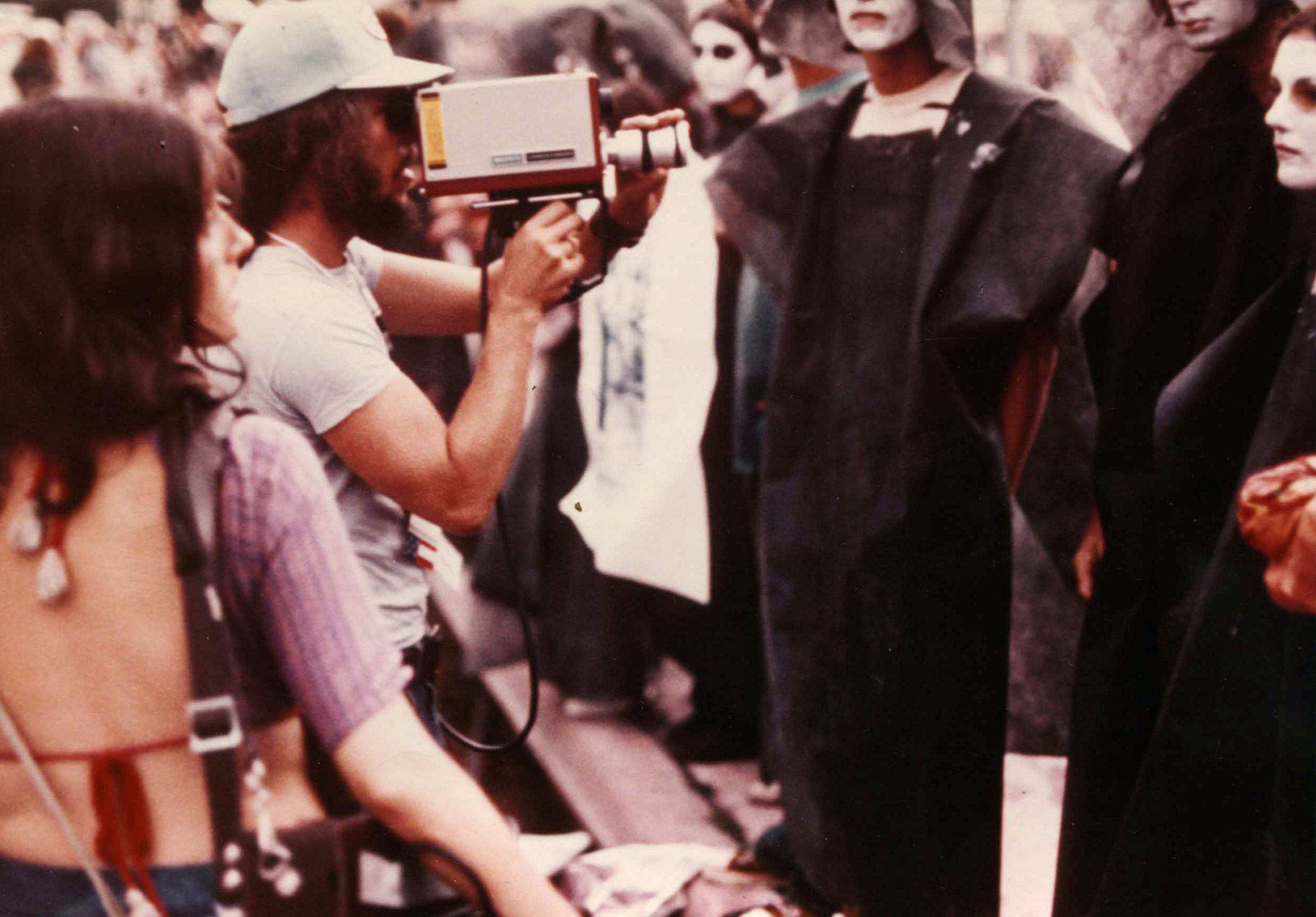
Some Takeaways from a Look at TVTV’s Four More Years and The World’s Largest TV Studio in the Time of Dual Pandemics
by Jon Winet
Has the World Become the World’s Largest TV Studio? [. . .]
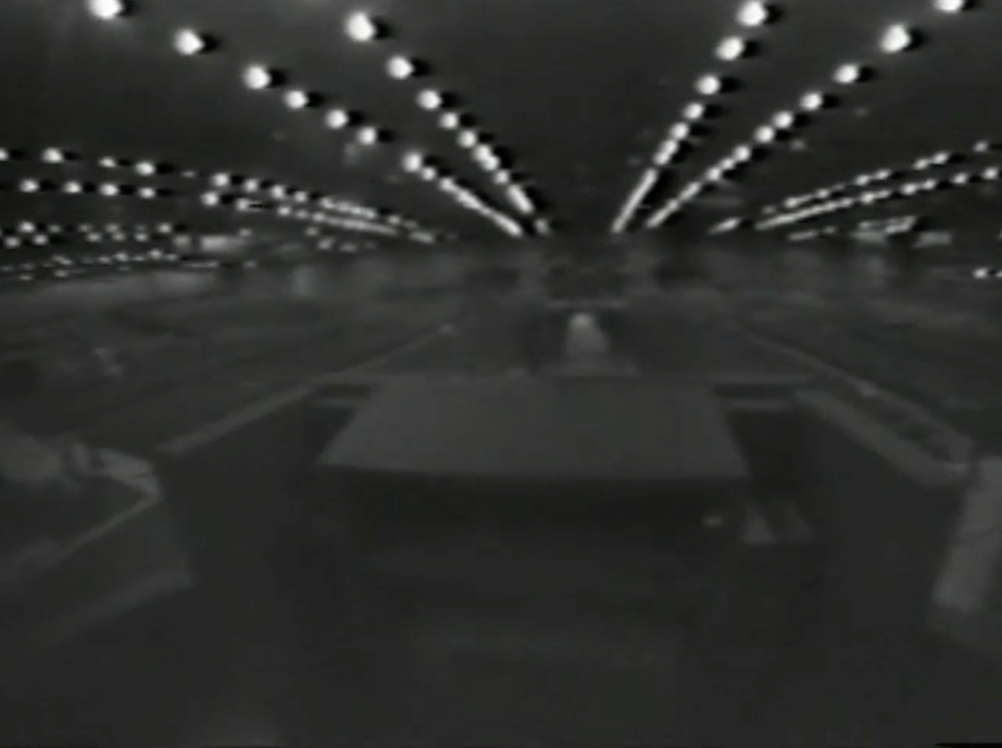
Confrontation TV
by Steve Seid
The following reflections are inspired by newly recovered source footage from the TVTV documentaries The World’s Largest TV Studio and Four More Years. This footage was transferred from the original ½-inch open reel videotapes during a preservation project funded by the National Endowment for the Humanities. [. . .]
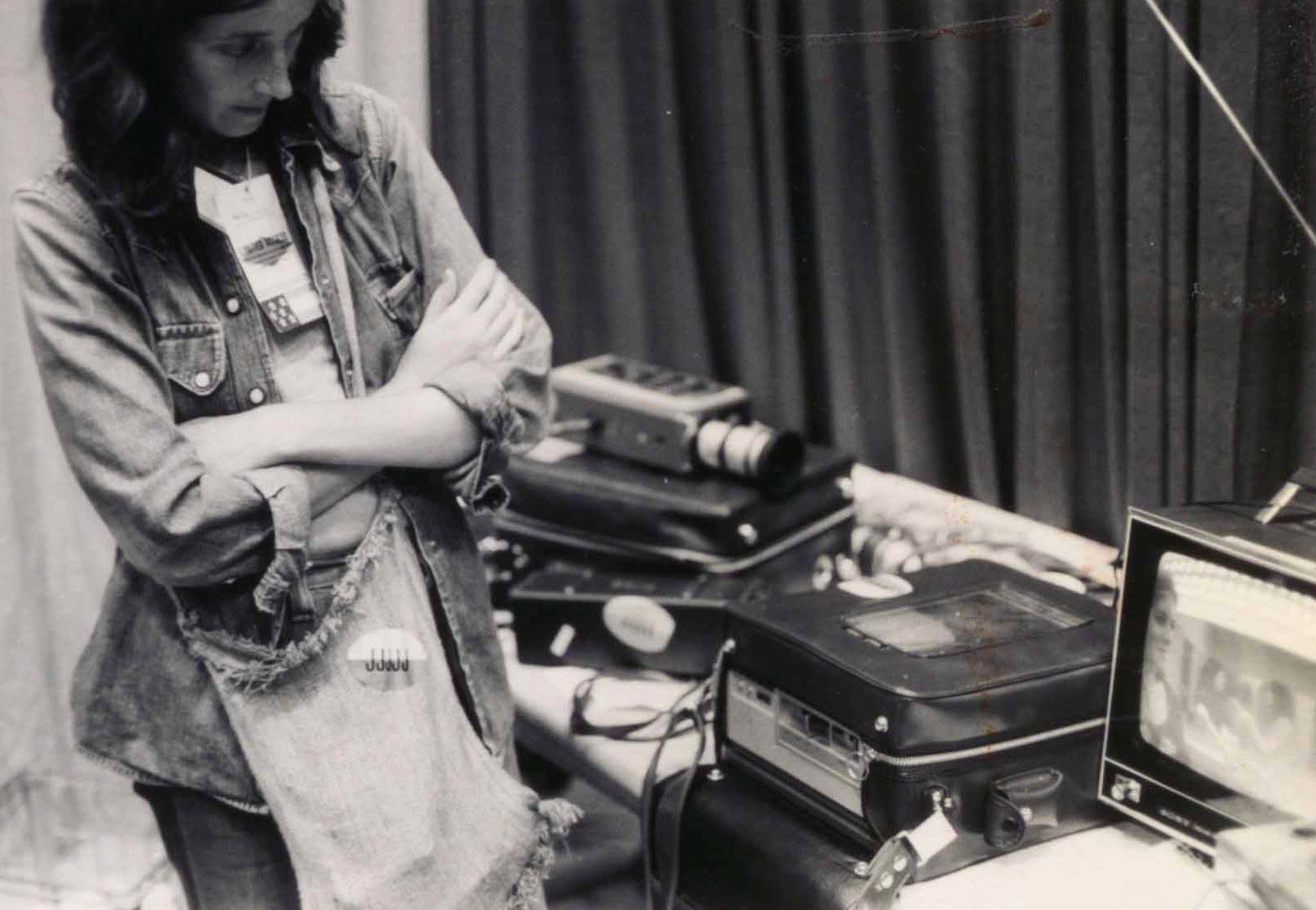
The Revolutionary Glowing Rectangle
by Rick Prelinger
Top Value Television came to the 1972 Democratic and Republican National Conventions armed with the revolutionary glowing rectangle of portable video and a new sense of entitlement. Though they took their equipment everywhere the established media did and many places it didn’t, their chosen arena was elsewhere: a communal media space, into which they hoped to invite and then engage the entire country. [. . .]
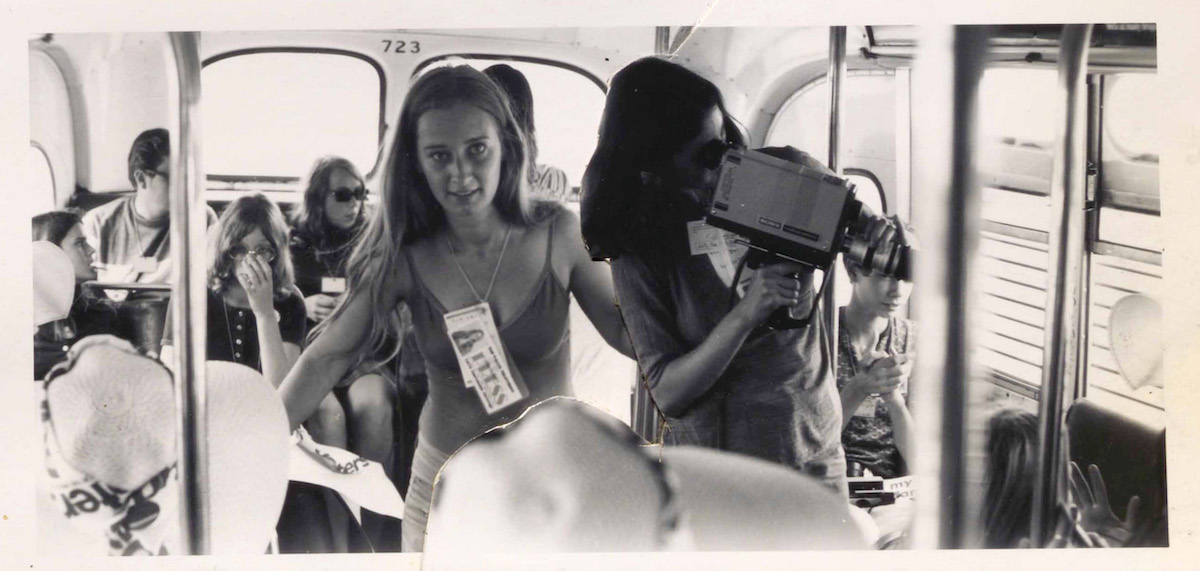
TVTV's America
by Brian L. Frye & Maybell Romero
Television is a paradox. It is the most radical medium of expression, but also the most conservative. It promises change, but resists it at every step. It could become anything, but somehow always becomes something familiar. Should we have expected more, or is that all there is? [. . .]
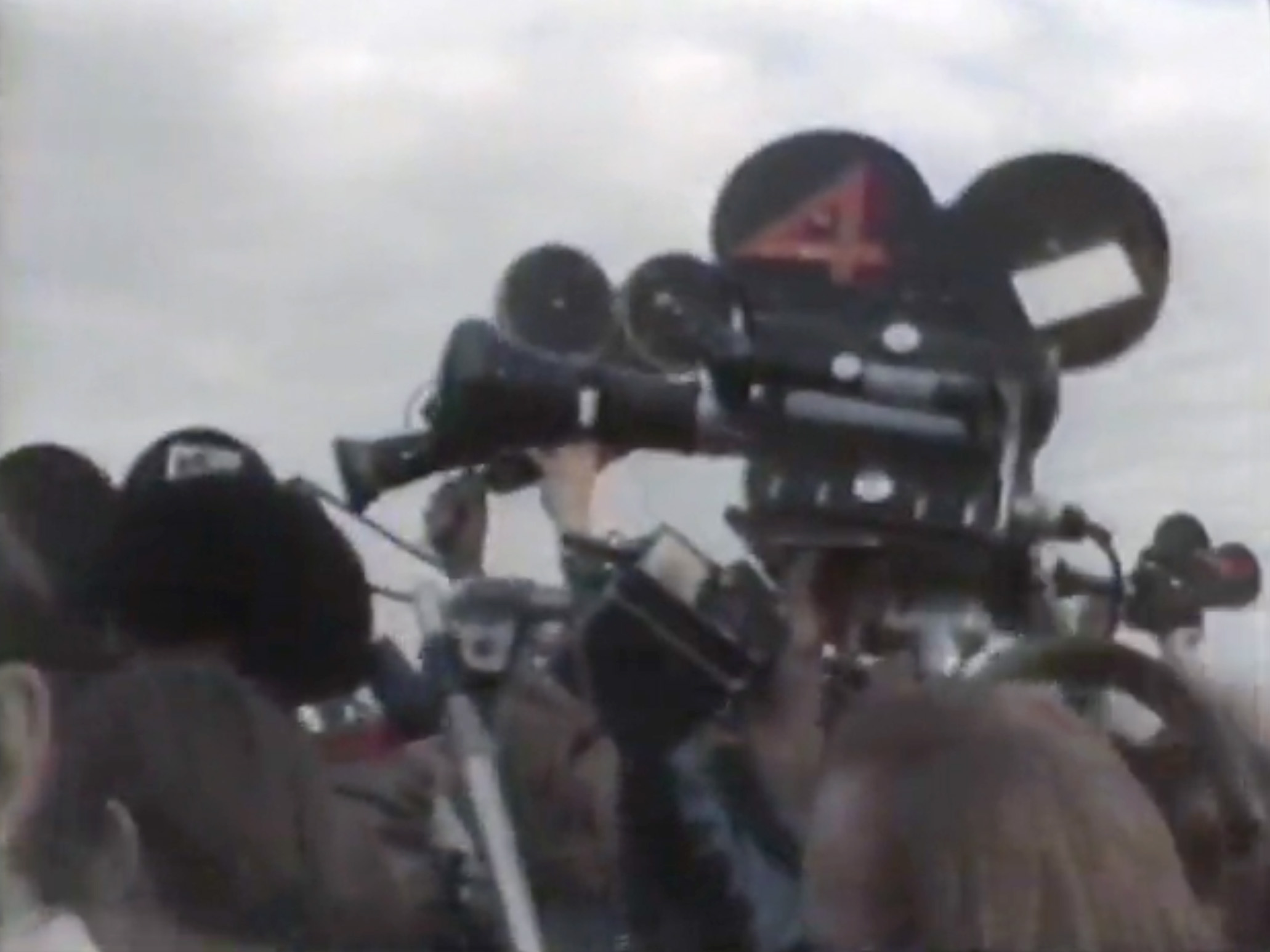
About the authors
Deirdre Boyle
Deirdre Boyle is the author of Subject to Change: Guerrilla Television Revisited (1997), a definitive history of the artistic and political scene that fostered groups like TVTV and the Videofreex She is a professor of media studies at the New School in New York City and writes frequently for scholarly film and media journals including Film Quarterly and Afterimage.
Brian Frye
Brian L. Frye is Spears-Gilbert Professor of Law at the University of Kentucky College of Law. His research focuses on intellectual property and legal history, especially in relation to the arts. He is also a filmmaker and film programmer.
Rick Prelinger
Rick Prelinger is co-founder of San Francisco's Prelinger Library and the Chair of the Department of Film & Digital Media at UC Santa Cruz. He is known for his radical championing of amateur and non-Hollywood media, and as host of Lost Landscapes screenings that show small-gauge home movies as a window into history from the bottom up.
Maybell Romero
Maybell Romero is an Associate Professor of Law at Northern Illinois University College of Law, where she teaches Criminal Law, Criminal Law, and Constitutional Law. Her research focuses on criminal legal system ethics, law and rurality, and juvenile justice.
Steve Seid
Steve Seid is the former video curator at BAMPFA and has written extensively on video art, guerrilla video, and activist art practice. He coordinated the donation of TVTV's video and paper archives to BAMPFA and in 2020 published a definitive history of Ant Farm's iconic conceptual art piece Media Burn. With Constance Lewallen, he also co-wrote a retrospective exhibition catalogue (Ant Farm: 1968-1978, 2004) of Ant Farm's work.
Jon Winet
Jon Winet is an intermedia artist and scholar active in exploring artists' relationship to politics and social change. Before returning to Berkeley this year, he was a professor in the University of Iowa School of Art & Art History, heading the Intermedia Program.
He has maintained ongoing multimedia work engaging with presidential conventions and the theatrical spectacle of U.S. presidential elections for decades. He is currently directing "Oxford to the Ballot Box" in Oxford, Mississippi.
